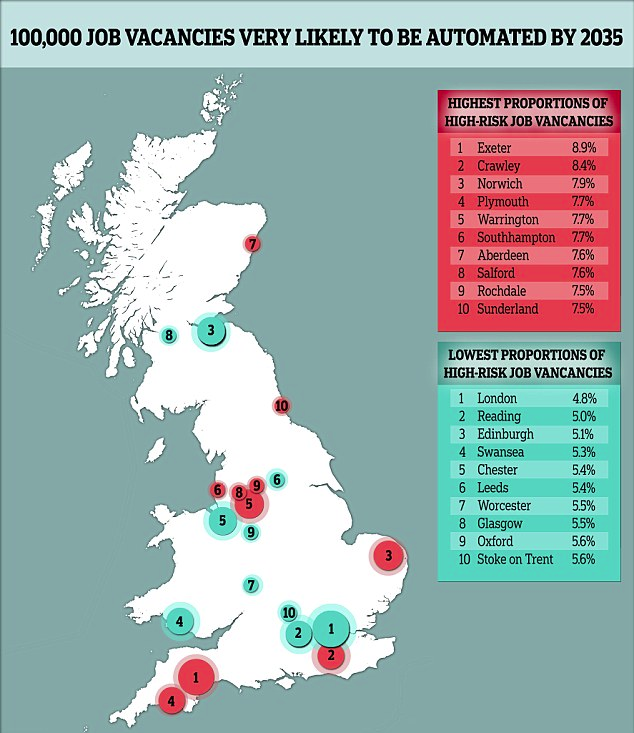 We’re gradually becoming more concerned about what jobs robots will replace first
We’re gradually becoming more concerned about what jobs robots will replace firstIn shocking new statistics released this week by Adzuna, it has emerged that over 100,000 jobs in the UK are likely to be made obsolete by 2035 by the ‘robot invasion’, with technological advances meaning that machines will be able to perform most mechanical work.
Cities traditionally fuelled by heavy industry, such as Exeter, Norwich and Plymouth, are likely to be most affected, with one in 11 jobs at risk in 20 years’ time. Staff such as machine operators and plant managers will be most affected; however, employees in secretarial and administrative roles are also at risk, the report suggest.
Official data released this week reveals that unemployment has fallen by 60,000 in the UK, however, with joblessness falling to its lowest rate in the last decade. The rate remains at 5.1 per cent.
How much of a threat does the robot invasion really pose? The co-founder of Adzuna, Doug Monro, suggests that the results of the study are a warning that a high proportion of vacancies being advertised in the UK job market will be obsolete in the near future. This will impact directly on job security, especially for young applicants looking for long-term employment.
To remain relevant, prospective employees need to develop skills that cannot easily be automated, such as communication, logic and writing skills.

An earlier study by Oxford University suggests that Exeter will be the hardest hit by the move to automation, with almost nine per cent of jobs advertised potentially being performed by machines in 20 years’ time. Other areas with significant predicted losses are Crawley, Aberdeen and Norwich.
London, Reading and Edinburgh are likely to suffer the least, with less reliance on mechanised industry. 12,688 roles are at risk in London, while Manchester and Bristol have 1,382 and 1,598 respectively.
The construction sector is likely to suffer, as could billboard installers, tree doctors and welders. Almost any role that can be replaced by computerised motion could be at risk, particularly since robotics is advancing in order to imitate human dexterity and senses.
There are still thousands of roles that robots are unable to perform; for example, public services, government and hospitality are unlikely to be affected. Even if machinery begins to make certain roles obsolete, this may create new jobs to supervise and maintain these operations.
One thing is for certain: unemployment is falling. Between September and November last year, 74 per cent of people aged 16 to 64 were working and average weekly earnings increased by 1.9 per cent. The robot invasion may have begun, but the UK job market is still full of opportunities for those with skills to offer.
Join Over 40,000 Recruiters. Get our latest articles weekly, all FREE – SEND ME ARTICLES
Recruiters love this COMPLETE set of Accredited Recruitment & HR Training – View Training Brochure








